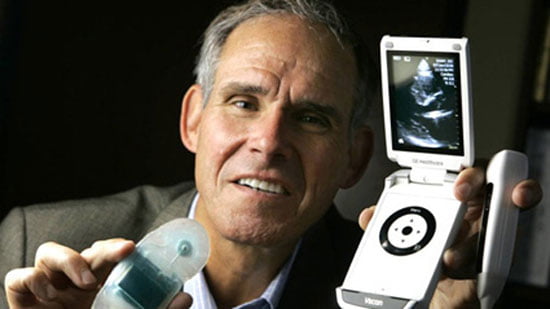
The passenger lost consciousness on the airplane during the flight. To his good fortune, his fellow traveler was Eric Topol. Topol is a cardiologist—but he didn’t perform chest compressions. He took out his smartphone and performed an on-the-spot electrocardiogram. It showed the unconscious passenger had nothing serious; he had fainted due to an occasional and common heart arrhythmia.
However, Topol didn’t even need to be a doctor. With a specific sensor that costs 200 dollars and the right smartphone app, anyone—even someone completely unfamiliar with medicine—could perform the same ECG or measure blood-oxygen levels. The app would automatically show whether everything was within normal limits or something pathological was occurring.
Various companies build this kind of “diagnostic” apps for “smartphones”: they scan various parts of the body collecting data that are compared with databases; they even “recognize” the type and use of pills. Playing doctor will soon become child’s play, probably to the dismay of professionals in diagnostic medicine.
It is, in any case, highly probable that the smartphone doctor is a transitional phase in the history of first-world “health sciences” (or at least of the representations/diagnoses of “health”). Implanted electronic meters will sooner or later emerge as the most reliable and responsible attitude of self-care…
